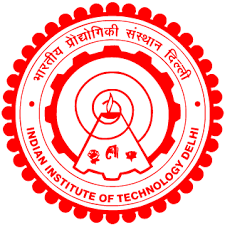A PhD in Instrumentation Engineering prepares students to teach and research a variety of interdisciplinary courses. The program emphasizes electrical, instrumentation, and control concepts. This graduate-level program can be completed in three years or four and a half years. The full-time or part-time program requires regular participation and coursework. The program's requirements differ slightly depending on the institution. There are two main types of doctoral programs, one for working professionals and the other for students who have a Masters or Doctorate degree in the field.
For students interested in pursuing a doctorate degree, the Instrumentation and Control Engineering doctoral program is designed for working professionals. The program teaches practical skills to undergraduate students in electrical and electronics engineering. The comprehensive syllabus provides an overview of all aspects of Instrumentation and Control engineering and gives graduates a comprehensive understanding of the field. Graduates of the program can work in industry, in installation units, and maintenance firms.
In order to apply to the program, students should have earned a B.S. degree in Electrical Engineering. Students with backgrounds in other fields are encouraged to apply to this program. During the master's program, students should take core courses in Electrical Engineering. The Graduate School requires a minimum GPA of 3.0 in all graduate courses. In addition, applicants should submit three letters of recommendation. They must also complete the application process.
Ph.D. in Instrumental Engineering Eligibility
Candidates who want to take admission in Ph.D. must have a post graduate degree in Instrumental Engineering and its relevant discipline with at least 55% marks from a recognized university and must have passed the national level entrance examination or university level entrance examination. National level entrance exam like UGC NET / UGC CSIR NET / GATE / SLET or University entrance exam consisting of written test and personal interview.
The Benefits of a Ph.D. in Instrumental Engineering
A Ph.D. in Instrumental Engineering is a graduate-level degree program that involves 54 semester hours of coursework. This degree is offered in two phases, each consisting of two courses. Students will complete coursework in advanced systems engineering, data analysis, and discrete systems simulation. In addition, students will gain practical experience through a variety of research projects. The coursework is designed to develop their technical and analytical skills, and students should expect to write several papers during their program.
To apply for the doctoral program, the student must first apply to a university. To do so, visit the website of the school of choice and fill out an online application. The application process is easy. You can find information about the doctoral programs offered at the school of your choice. Afterward, contact the admissions office at the university you want to attend. There are several requirements for applying to a doctoral program.
A Ph.D. in Instrumental Engineering enables students to specialize in one area of the field. This degree also allows them to become an expert in that field. They are well-positioned to teach students and develop new technology. They are also likely to receive top leadership positions, which is essential for success. They will also be able to work with colleagues from different fields and be exposed to interdisciplinary learning.
The Career and job Opportunities of a PhD in Instrumental Engineering
During your doctorate study, you will learn about a variety of interdisciplinary topics that include electrical, control, instrumentation, and process monitoring. You will have the opportunity to participate in research and development projects, and be involved in the design, installation, and management of equipment. You will also monitor engineering systems, machinery, and processes. And if you have a background in instrumentation, you can be an expert in this field.
With a Ph.D. in Instrumental Engineering, you can work in a variety of settings. You may find work in industry, government, or academia. You may choose to work as a consultant, or for an instrumentation firm. Your job opportunities will depend on your background and experience. A PhD in Instrumentation Engineering will provide you with the knowledge and skills necessary to advance your career.
Career options for Instrumentation engineers depend on your background and interests. Automation is a growing trend in all industries, and engineers with instrumentation and electronics knowledge are needed to make this possible. In addition to working in automation, Electronics and Instrumentation Engineers are finding a number of new job opportunities in a variety of domains. If you are a talented Instrumentation or Control Engineering student, you may even want to consider a career in the Hardware sector.
The Future Scope of Ph.D. in Instrumental Engineering
The Ph.D. in Instrumental Engineering program is aimed at students who have an interest in the field of instrumentation. The graduates of the program will have the opportunity to work in a wide range of industries. Many instruments used in modern laboratories are developed by instrumentation engineers. For example, thermocouples are used to regulate the temperature of a furnace. These devices are the basis for the development of supercomputers.
The breadth requirement requires students to complete five courses (15 hours) in technical electives. These courses are grouped into three categories: biomedical, environmental, and systems. Students are expected to focus their research in one of these categories. However, students may take courses in all three categories. This is an advantage for those who are interested in the future of the field. The degree is a four-year program, and it is a wise investment.
The PhD program requires students to take 12 courses. The five courses are organized into three general categories: biomedical, environmental, and biological. Each of these areas has a variety of specialties that a student may pursue. A student can choose any of the three areas, or any combination of them. The degree program director and advisor help students develop their degree plan. For the biomedical electives, the students must complete three courses in the department of Biomedical Engineering.
Ph.D. Research Programme duration
The Ph.D. in Instrumental Engineering course is minimum 3 years and maximum 5 in duration. This depends on the university offering the course.
Fees for research programme for Instrumental Engineering
The average fee for Ph.D. in Instrumental Engineering degree is between INR 50000 and INR 500000.
 5 Years
5 Years
 PhD
PhD
 Research
Research














 back
back